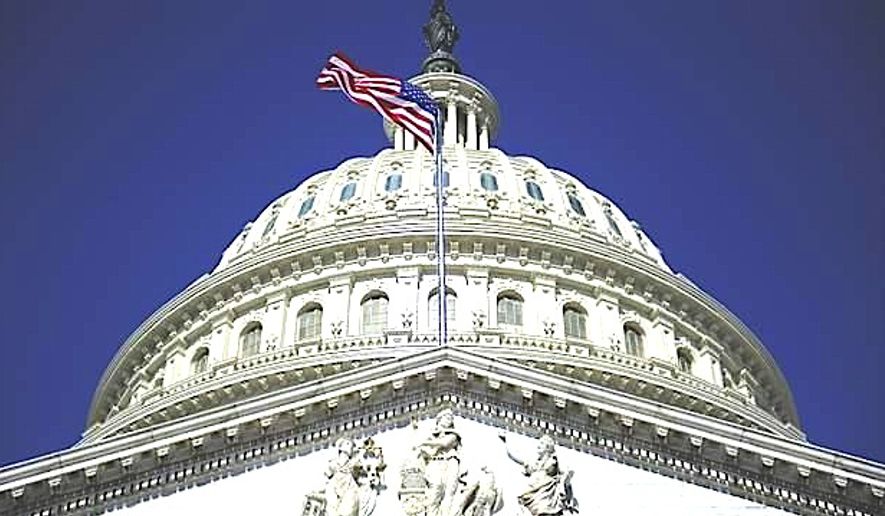Don’t underestimate Congress.
It has performed a miracle.
It has lost its vertebrae and become the invertebrate branch of government like the rare devolution of a species.
A few pages of history speak volumes.
More than four decades ago, Congress staunchly defended and exercised its constitutional prerogatives. It defeated or curtailed executive usurpations reminiscent of Imperial Rome.
In 1970, Congress voted to repeal the ill-conceived 1964 Gulf of Tonkin Resolution based on a presidential lie about a second North Vietnamese torpedo attack on the USS Mattox.
In 1971, Congress voted to prohibit the reintroduction of ground troops into Cambodia.
In 1973, Congress prohibited any bombing of Cambodia, and further denied funds for combat operations off the shores of North Vietnam, South Vietnam, Laos, or Cambodia.
In 1973, the Senate Judiciary Committee specified the powers and jurisdiction of a special prosecutor to investigate the Watergate scandal as a condition to confirming Elliot Richardson as Attorney General.
In 1973, Congress passed the War Powers Resolution to curtail unconstitutional presidential wars.
In 1974, Congress passed the Budget Control and Impoundment Act to prevent the President from refusing to spend appropriated funds.
In 1974, the House Judiciary Committee voted three articles of impeachment against President Richard M. Nixon for “high crimes and misdemeanors,” which forced his resignation on August 9.
In 1974, President Gerald R. Ford testified before Congress about his pardon of former President Nixon.
In 1975, Congress passed the so-called “Clark Amendment” to prohibit C.I.A. covert action in Angola.
In 1975, the Senate established a Select Committee to Study Government Operations with Respect to Intelligence Activities, popularly known as the “Church Committee.” It published a report on Alleged Assassination Plots Involving Foreign Leaders which implicated the United States Government in assassination plots regarding Patrice Lumumba of the Congo, Fidel Castro of Cuba, Ramon Trujillo of the Dominican Republic, Ngo Dinh Diem of South Vietnam, and General Rene Schneider of Chile.
President Ford protested the publication arguing that “public disclosure now of information I provided to the Senate Select Committee concerning allegations of political assassination activities of the United States Government will result in grievous harm to the national interest and may endanger individuals.” Chairman Frank Church (D-Idaho) stoutly answered that “the national interest is better served by letting the American people know the true and complete story. A basic tenet of our democracy is that the people must be told of the mistakes of their government so that they may have the opportunity to correct them.”
In 1978, Congress passed the Foreign Intelligence Surveillance Act (FISA) to curtail warrantless presidential spying on American citizens for foreign intelligence purposes.
Over the ensuing decades, however, Congress lost its vertebrae.
Unconstitutional presidential wars have been initiated against Bosnia, Kosovo, Libya, the Islamic State of Iraq and the Levant and its associated forces throughout the Middle East, and North Africa without congressional rebuke.
House Speaker Nancy Pelosi (D-CA) took presidential impeachments off the table.
Executive agreements have been substituted for treaties requiring a two-thirds Senate vote for ratification, e.g., the Joint Comprehensive Plan of Action that addresses Iran’s nuclear ambitions.
Executive Order 12333 circumvents FISA’s limits on the President’s authority to spy on citizens for foreign intelligence purposes without congressional objection.
Congress permits the President to spend money in violation appropriations limitations.
Congress permits the President to classify congressional documents and to prohibit their publication contrary to the Constitution’s Speech or Debate Clause and the Supreme Court’s decision in Gravel v. United States (1972), for example, the Senate Torture Report and a 28-page chapter of the report of the Joint Congressional Inquiry into Intelligence Activities Before and After the Terrorist Attacks of September 11, 2001.
Congress permits executive agencies like the Consumer Finance Protection Bureau, to operate without appropriated funds.
Congress permits executive agencies like the Federal Communications Commission to levy taxes through surcharges on phone bills in furtherance of universal service.
Congress tolerates the President playing prosecutor, judge, jury, and executioner to kill any American citizen the President decrees is an imminent danger to the national security based on secret, uncorroborated evidence supplied by the same intelligence community that wrongly concluded that Iraqi President Saddam Hussein possessed weapons of mass destruction.
Congress slumbers while the President squanders trillions of dollars abroad on fool’s errands in Iraq, Afghanistan, Libya, Syria, Yemen, Somalia, and elsewhere that make us less safe. They create enemies that would not otherwise exist, and resemble a foreign policy of smashing hornets’ nests with bayonets and spending trillions to fight the angry hornets we provoked.
In sum, chronic congressional cravenness is destroying the U.S. Constitution’s separation of powers and the Republic more completely than a nuclear bomb could accomplish. Yet that fatal dereliction is ignored by the candidates, media and voters alike as if they were all sleepwalking through history.
We will soon learn the truth of Thomas Jefferson’s admonition: “If a nation expects to be ignorant and free, in a state of civilization, it expects what never was and never will be.”




Please read our comment policy before commenting.